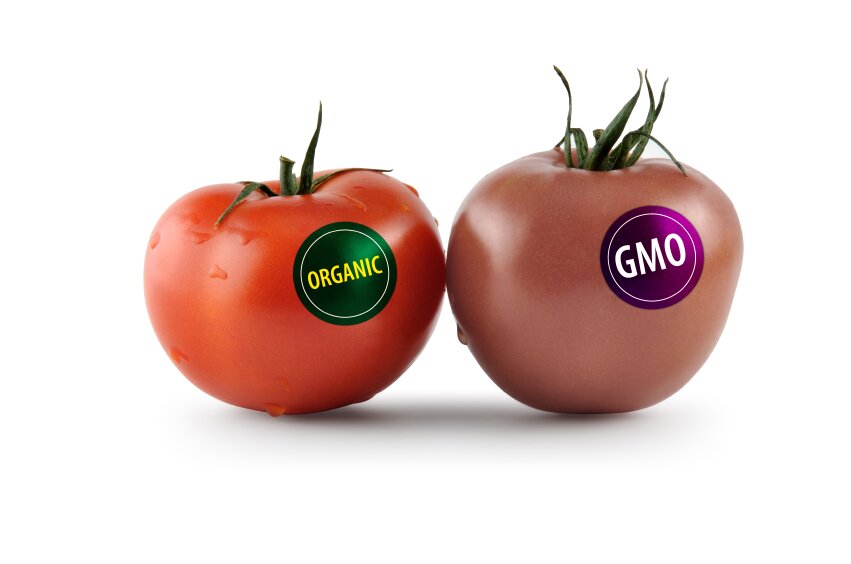Organic VS Non-Organic Debate
Food Quality is Everything

As I start this blog post, I think about how meaningless this debate is when considering our Paleolithic ancestors that roamed this earth 2.5 million years ago. Back then, we ate what was seasonally available and we didn’t have to deal with the negative environmental and health impacts of chemicals used in growing our food.
Nowadays, it’s both amusing and disconcerting the priority, or lack there of, most people place on food quality. We’re more likely to walk passed the organic food isle at the supermarket to search for the best deal on eggs and meats. Yet, we won’t think too long about buying that new car, dress, suit or holiday. When it comes to nutritional prescription for our clients, food quality is everything. We couldn’t care less about tailoring foods to meet the metabolic needs or body types of our clients, unless we first control for quality of foods.
When we evaluate the available research in this area, it’s understandable why the organic versus non-organic debate exists. In 2009, the Food Standards Agency, an independent Government department set up by an Act of Parliament to protect the public's health and consumer interests in relation to food, showed that there are no important differences in the nutrition content, or any additional health benefits, of organic food when compared with conventionally produced food.
Other systematic literature reviews have recently analysed the available published information, with the aim of identifying the potential effects of organic and conventional production protocols on the nutritional quality of crops. However, these systematic reviews present with multiple limitations including methodology flaws, failure to use more recently available publications, and poorly structured assessment of the gathered evidence.
As a result, there is still considerable controversy as to whether the use of organic production standards results in significant and consistent changes in the concentrations of potentially health-promoting and potentially harmful compounds in crops and crop-based foods.
So, what do we have to support the health benefits of organically grown crops? A recent meta-analyses was published in the prestigious British Journal of Nutrition in 2014 that set out to examine the difference in composition between organic and non-organic crop based foods. This Newcastle University led study analysed 343 papers where more than one-half of the publications analysed were published after 2006. A major strength of this study was that it systhesised a much larger evidence base that allowed the authors to use more appropriate statistical methods to draw more definitive conclusions between organic and conventional crops.
The findings from this study were significant. The authors showed that organic crops are up to 69% (18-69%) higher in important antioxidants like polyphenols versus conventionally grown crops, the equivalent of eating between 1-2 additional portions of fruits and vegetable a day!
This study also found significantly lower levels of toxic heavy metals in organically grown crops. Specifically, cadmium, which is one of only three metal contaminants along with lead and mercury for which the European Commission has set maximum permitted contamination levels in food, was found to be almost 50% (on average 48%) lower in organic crops than conventionally-grown ones. Also, nitrogen concentrations were found to be significantly lower in organic crops and pesticide residues were four times more likely to be found in conventionally grown crops versus organic ones.
Professor Charles Benbrook, one of the authors of the study and a leading scientist based at Washington State University, stated: “Our results are highly relevant and significant and will help both scientists and consumers sort through the often conflicting information currently available on the nutrient density of organic and conventional plant-based foods.”
Certainly, continued research needs to be conducted, particularly with controlled human dietary intervention to understand the health impact of switching to organically grow crops. However, it is this very publication that gives clear reasoning behind why we at Trillium Fitness place such heavy emphasis on controlling, first and foremost, the quality of food prescribed to our clients.
References:
Baranski, M. et al. British Journal of Nutrition (2014) Higher antioxidant concentrations and less cadmium and pesticide residues in organically-grown crops: a systematic literature review and meta-analyses.
Dangour AD, et al. American Journal of Clinical Nutrition (2009) Nutritional quality of organic foods: a systematic review.
Dangour AD. et al.. American Journal of Clinical Nutrition (2010) Nutrition-related health effects of organic foods: a systematic review.
Dangour AD, et al. Indian Journal of Medical Research (2010) Nutritional composition & health benefits of organic foods – using systematic reviews to question the available evidence. pp 478-480.